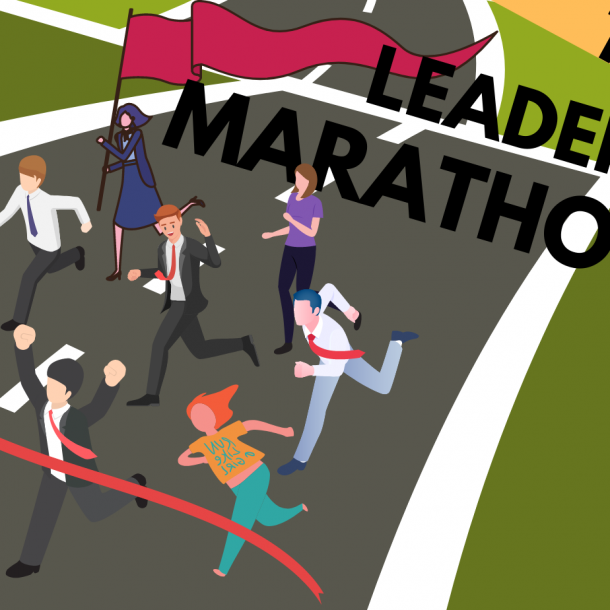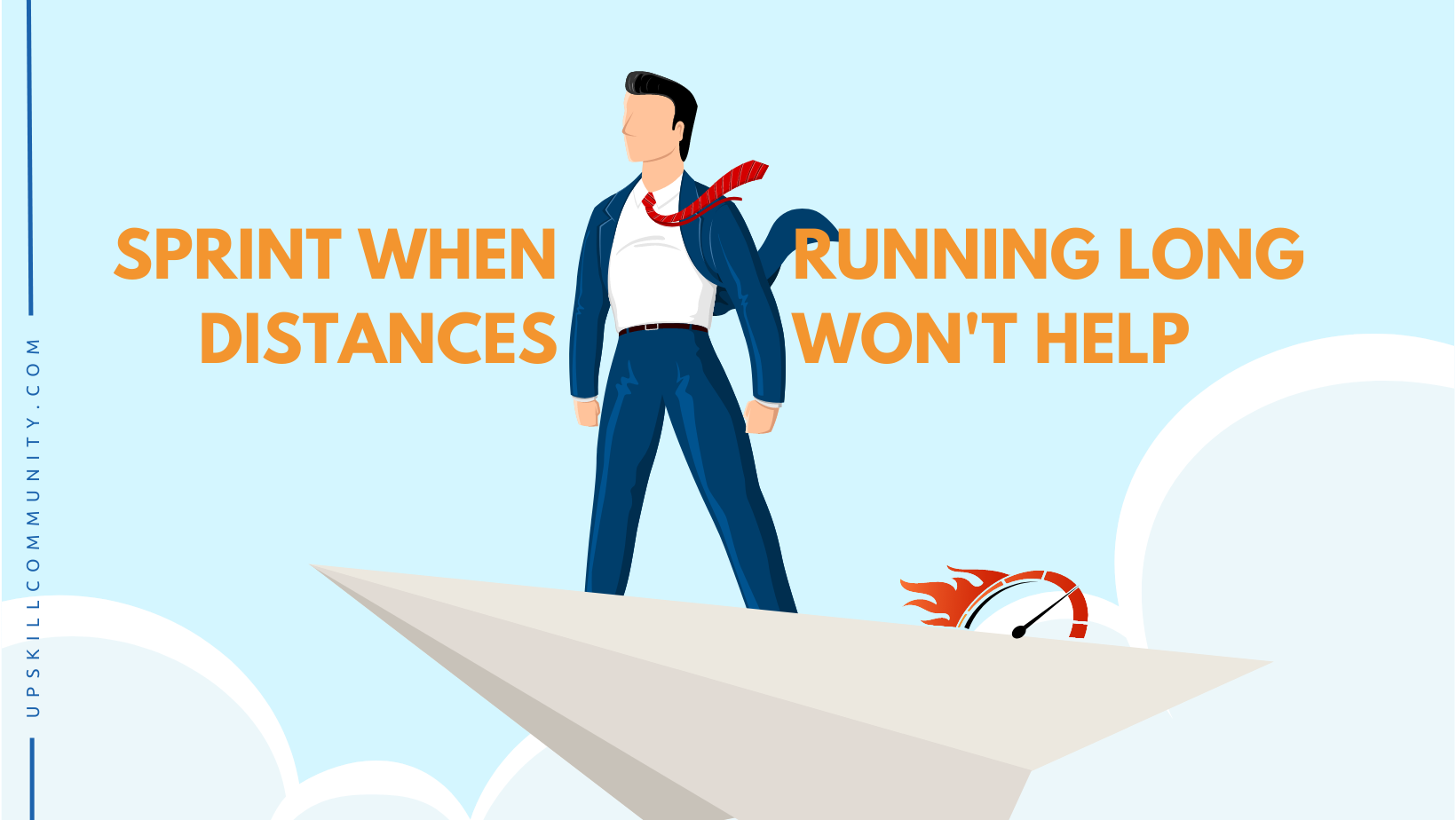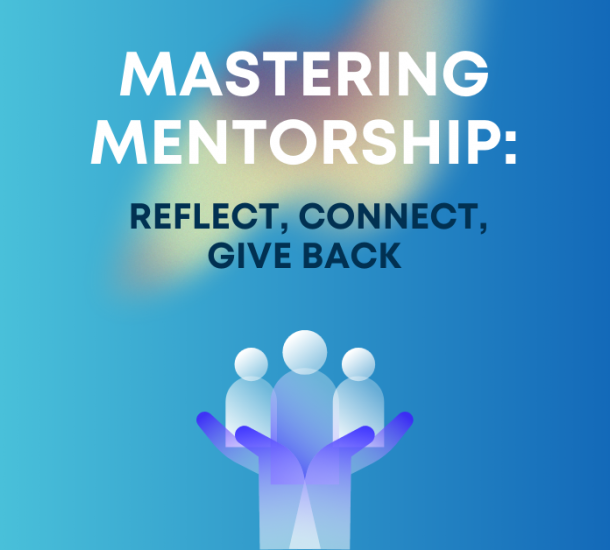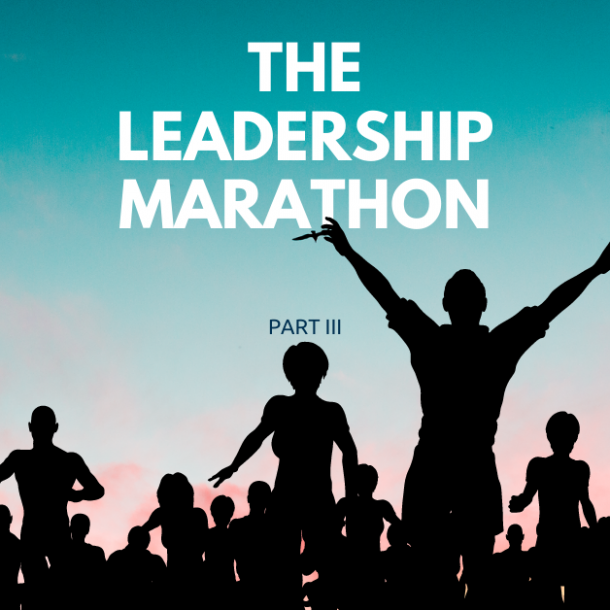
UpSkill: The Leadership Marathon, Part II
In this blog post I’ll share lesson #2 learned from the 2022 Boston Marathon.
In the last blog post I introduced the first lesson: That leadership is a journey, with ups and downs, and requires a marathoner’s mindset. A long-distance mindset. We need a long-term learning and navigating mindset in order for us to cope and perform with shifting leadership demands.
The second lesson for leaders is that developing leadership skills requires a mix of marathons and sprints. Sprints and marathons are polar opposites and require different skill sets. Sprinters need high speed over short distances: 100 meters, 200 meters. The race is over in a flash.
Marathoners need stamina over 10 kilometres, 26 miles, 42 kilometres. Leaders, we need both sets of skills. The capacity to sprint and the stamina to stay on the marathon course.
Developing leadership skills combines sprint and marathon strategies: speed and power, durability and stamina.
Developing leadership skills is like interval training. It is a long-distance marathon with long periods of less intense leadership development over a long time. Yet there also intense jolts of new knowledge, new skills, and new mindsets to support the longer journey.
Sometimes you need a sprint. A quick burst of new ideas, new partnerships, exposure, experiences etc. Something that takes you outside of your comfort zone.
These quick bursts give you energy for the longer journey, where the skills from the sprints help you to learn, reflect and continue to grow.
You may have been on your leadership journey for a while, or you may be new. Your journey will be more like a marathon. It must be long-term. You have to think about a sustainable leadership strategy.
Where are you on your leadership journey right now? Do you need a sprint right now? An injection of fresh perspectives, new knowledge, more exposure?
Are you feeling ready for the changing demands of a leader? What scares you? What gives you hope?
What are you working on that you’re proud of? What recent changes have you made that make you feel good?
What are your hopes? What are you working on that makes you proud? What shifts have you made that make you feel good? What are you intentionally focusing on that lets you know you are elevating your leadership? What are you going to do if you haven’t started?
What sprint interval can you inject now that would add value to your leadership journey?
What do you need to do to Upskill?
Do you need to take a course? Do you need to volunteer? Do you need to collaborate across industries or communities? Do you need to freshen up your pool of connections or build new relationships? How are you freshening up your pool of ideas?
What are your leadership needs right now? How can you best address them? Think and be intentional on this journey.
Ramp up your energy. Refocus. Disrupt your thinking before anyone disrupts it for you. Disrupt your actions. Disrupt your way of being. Be your own disruptor. Don’t leave it to anyone else. Reimagine. Connect with others. Whatever you choose to do, however you choose to do it. Don’t keep doing the same thing. Step out of the comfort zone. Step into the higher-order leadership that is asked of us in this new world order.

You need to take a sprint on your own terms, at your own pace. Whatever you choose to do, however you choose to do it. It’s your journey on your terms: your goals.
This does not mean you stay in your comfort zone and do things the way you’ve always done them. It means changing. You’re not a leader if you’re not leading change. In order to change, we must learn. We must grow.
Step out of your comfort zone but do so in bites that make sense for you. You do not need to sprint because the person next to you is sprinting. Run your own race.
You must be in the race though. Stay engaged: exploring, experimenting, building relationships, making mistakes and learning from them.
Take the bites that you are comfortable taking. Your results may show quickly or they may be delayed. This is the beauty of a long-distance mindset. You have time to reach your destination, but you must stay deliberate about making progress.
Focus on your own goals, your needs. The goal is to set your own goal and design a journey that gets you there on your own terms. Remain in control of your own race, but remember it is a race. You are not standing on the starting line or stopping in the middle of the track. You are intentionally putting one foot in front of the other.
You take the bites that work for you on your leadership journey, the same way that people run at the pace and at the speed that they can cope with. Marathons have a lot to teach us about our leadership energy. Run your own race. Take the actions that you need to take. Make the shifts you need to make. Do them, but do them at your own pace so that you continue to move forward one step at a time.
Your actions, your shifts need to be sustainable. Your unique journey is like no other person’s journey. Focus on you, your perspectives, your experiences, your purpose, your goals, your needs, your preferences, your style. You, your authentic self.
The Boston Marathon teaches us that leadership is a journey. Developing leadership skills requires a mix of marathons and sprint. Most importantly, it teaches us that your leadership journey is about you. However, that is not excuse to shift away from growing, developing, changing, shifting and being ready to achieve higher and higher levels. It’s non-negotiable in our environment. It just means you run your own race.
Pause and think about your journey, think about your skills. Think about your needs, and definitely think about your mindset. Take a sprint, and get in the game. Take a sprint and get ahead of the game. Take a sprint, make sure you’re in the game. Improve your preparation for the unknown. Leaders must be ready and ahead of everyone else to qualify as leaders.
In a world where so much is shifting we really need higher levels to be able to lead. In this environment if you don’t intentionally take steps to upskill you are unlikely to be ready for tomorrow’s challenges. Tomorrow’s leaders are learners on a marathon.
They take sprints from time to time to upskill as part of their longer journey. Their process, their work, their life. They do it because it’s who they are. They are committed to the long-distance journey for greater sustainability for all of us.



